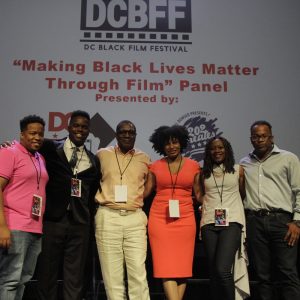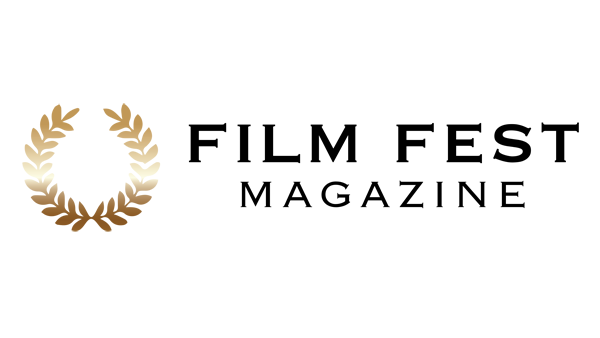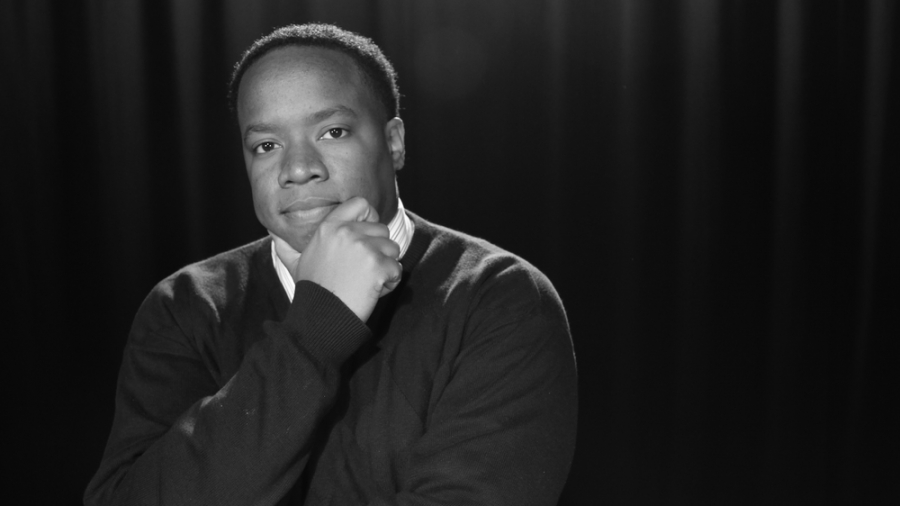By Precious Ringor
In 2016, Kevin Sampson founded the DC Black Film Festival (DCBFF) and in 2017, the first festival took place. This year, DCBFF is celebrating its 4th year virtually. Kevin Sampson is a film maker, critic, and publicist dedicated to helping promote “stories and storytellers that can change the world.”
How do you personally define the mission of DCBFF?
I think our biggest mission is two-fold. The first part is to expose the rest of the world to different artists of African descent and also stories by and about people of African descent. The second part is to give a place for these film makers and actors to have their work seen. It’s really so that other people can experience the culture.
When and how was the DC Black Film Festival founded?
As a film critic, I went to see Think Like A Man 2, and I was just disappointed in the film. I watched the first Think Like A Man movie and to me, it was a super hit. It was funny, while the second one was more of the Kevin Hart show. It was a letdown from what we had just experienced from the first one. So, I went home and I wrote this open letter to Black screenwriters and it really kind of took off from there. I got feedback from people in and out of the industry. Some said we don’t have the resources – whether it’s capital or places to exhibit our work. I was directing the Rosebud film festival at that time and I knew I always wanted to start my own film festival. It kind of just happened.
I think it’s fun that each year we’re able to just have a small part in these films and filmmakers’ lives. There have been plenty who have gone on to do better and bigger things, but just for that moment, to be able to showcase their film is awesome.
You speak with so much passion about the film industry and the festival. Were you always interested in films growing up?
Since I was a little kid, I’ve loved movies and TV. In high school, I was a thespian; Iwas in school plays and drama. But when I went to college for my degree, I did media arts. And so, I got behind the camera for the first time and realized that you can tell more of the story being behind camera than just being in front. From there I went to grad school, became a film critic, and the story goes on.
With everything going virtual, what are some changes you’ve made to the festival line-up?
This year, [besides doing] panels and masterclasses, we pre-recorded all the Q&A so people are able to see them with the filmmakers. But the panels are all live. One of the goals of the festival is to help educate people and, if we can, offer these free resources. This year we have a few panels. One is Using Our Voice: Black Film Critics panel. It’s basically me with four other panelists talking about what it’s like to be film critic who happens to be Black and what it’s like to use our voices in the industry. We also have a collaboration with DC shorts that looks at the power of short filmmaking.
We’ll also have a 90s film party – I wanted to do something different that would be a staple we can look forward to each year. It’s just a fun way of getting together.
One thing I love about the festival and that we’re going to miss this year is having that energy with which we come together, ask questions and hear other people’s ideas. Hopefully we can replicate that virtually. It’ll be exciting!
And in what ways has the festival evolved or changed you?
With each year, I’m learning a little bit more. As with anything that grows, you have to evolve with it. Last year was the first time we were in two separate locations. We were at the Miracle Theatre, which is where we usually hold the festival, and we were also at the Mayflower Hotel. It was cool to see it at two different locations. Then, COVID hit this year and now we’re doing it all virtually, which is something we’ve never done before so that was a good learning curve.

Panelists pictured from last year’s film festival in Miracle Theatre. Source taken from Picture Locked Unlock Podcast.
2020 is a tough year for everyone, not just because of the pandemic. How have you structured your festival to address all that’s happening right now in the world?
One of the staples I’ve done since day one is the “Making Black Lives Matter Through Film” panel. The genesis of that was first asking “How can we make Black lives matter through the craft of filmmaking?” As artists, we’re not the policy makers, but we protest with our art. How can we use that art to help people understand Black culture, people, etc? We’ve been talking about this since day one so it’s not something new to us.
However, I will say that the filmmakers are generally a mirror to what’s going in the world. I expect that next year there will be a lot of art pertaining to what’s going on today with different protests since generally there’s a year lag when we see artists speaking about it. It’s a privilege to be able to bring that to the world, to be a place where filmmakers can show their work and speak about that work. And that’s really important because I want the festival be a safe haven for conversation. If we don’t talk to one another, we’ll continue to be in the state we’re in. There’s so much more that we have in common and if we actually leaned into that and stopped to have a conversation with one another, understand the other side – even if you walk away and you’re still in disagreement, you can say “I can relate to that”.
How can the public continue to support your organization?
I think spreading the word is important. People can go to http://dcbff.org and subscribe to our mailing list so they’re always on the know of what’s happening throughout the year. As a non-profit, having sponsors is really important.
To learn more about the DC Black Film Festival, visit http://dcbff.org/aboutdcbff
Stay tuned in to @dcblackfilmfest #DCBFF for updates about the event!
For more information about Kevin Sampson’s work, visit https://www.iamkevinsampson.com

